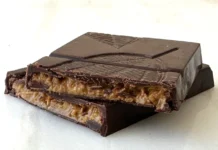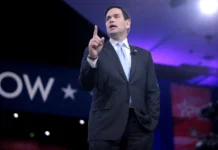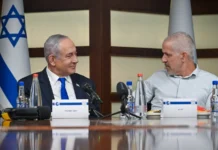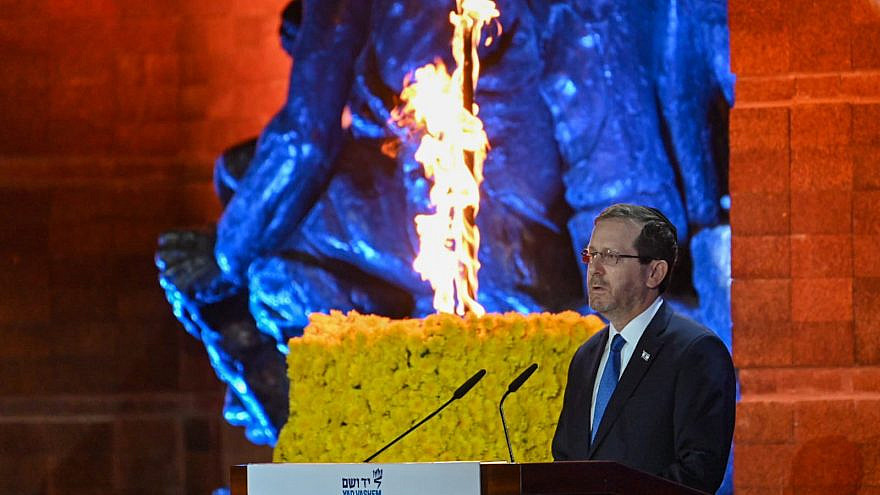During his Holocaust Remembrance Day speech on Monday night at Yad Vashem, Israeli President Isaac Herzog admonished the public never to invoke the genocide of the Jews in any context other than the Shoah itself. This was a not-so-veiled reference to a practice that’s become frighteningly commonplace in the politically polarized country.
“The Nazi abomination is an unprecedented evil, unique by any measure,” he said. “We must remember, repeat and emphasize again and again: These, and only these, are Nazis. This, and only this, is the Holocaust. Even when we are in the midst of fierce disagreements on our destiny, calling, faith and values, we must be careful about and guard against making any comparison, any analogy, to the Holocaust and the Nazis.”
“For them,” he pointed out, “we were one people, scattered and separated among all the nations, with one sentence: death. And our victory over them, as well, which takes place every day, is a victory of one people.”
He concluded: “We are currently celebrating 75 years of Israeli independence—75 years of victory during which the Jewish and democratic State of Israel and its [proud] society are standing up and declaring to the Nazi monster and those who, even in this generation, are following in its path: ‘You cannot defeat us, because we are brothers and sisters; yes, siblings who know how to argue and dispute, but never hate one another, are never enemies.’ We are one people and we will remain one people, united not only by a painful history, but also by a shared destiny and a hopeful future.”
Supporters of the government accused him of abetting the opposition to thwart judicial reforms. Members of the protest movement were more vitriolic.
“I’m ashamed that you’re the president of my country,” tweeted one respondent. “You have nothing to say about the pure evil [Prime Minister Benjamin Netanyahu] that’s trying to destroy the country just to get out of going to jail.”
Another, writing “Yair Golan was right,” posted an article from 2016 about the then-deputy chief of staff of the Israel Defense Forces, who took the opportunity of Holocaust Remembrance Day to caution against the country’s own “seeds of intolerance, violence, self-destruction and moral deterioration.”
Yet another argued, “Make no mistake; the comparison [of the current government] to the rise of the Third Reich is absolutely spot on!”
So much for Herzog’s words about Jewish unity, delivered at the World Holocaust Remembrance Center in Jerusalem. Simultaneously, at a Tel Aviv synagogue service marking the somber event, MK Boaz Bismuth from Netanyahu’s Likud Party was heckled loudly as he attempted to express a similar sentiment about brotherhood.
Shouting one of the key chants at anti-government rallies (“shame, shame, shame”) and ordering him to leave, many congregants wouldn’t let him speak. Some attendees yelled at them to stop harassing their guest. Faced with the altercation that was threatening to turn physically violent, Bismuth exited the premises.
“When your daily job is to corrode the remains of Israeli statehood, and then you appear at a Holocaust Remembrance Day ceremony and pretend to represent something, don’t be surprised when you’re thrown out on your butt,” tweeted Raanan Shaked, an editor at the Hebrew daily Yedioth Ahronoth.
This type of hyperbole, along with the very comparisons and analogies that Herzog insisted rightly should be taboo, is not only now the norm; its spewers refuse to refrain from employing it even while the country mourns the six million who didn’t live to see the birth of the Jewish state and honors the survivors of the unfathomable atrocity.
It’s as inexcusable as any form of Holocaust denial. Shame on any Israeli who engages in it.
Ruthie Blum is a Tel Aviv-based columnist and commentator. She writes and lectures on Israeli politics and culture, as well as on U.S.-Israel relations. The winner of the Louis Rappaport award for excellence in commentary, she is the author of the book “To Hell in a Handbasket: Carter, Obama, and the ‘Arab Spring.’ ”


























